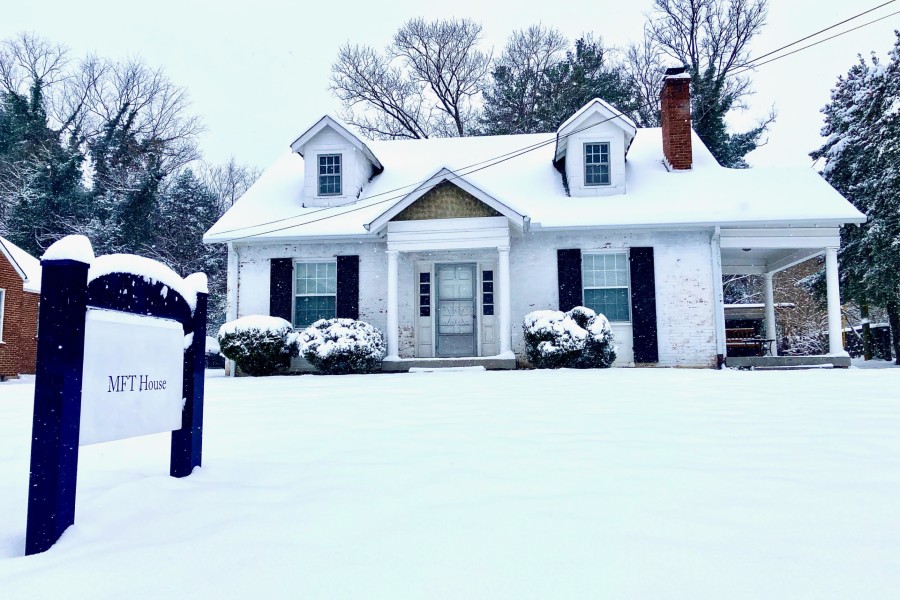MMFT alumni band together to endow scholarship
Logan Butts |

When Dr. Chris Gonzalez started the Master of Marriage and Family Therapy (MMFT) program in 2012, he never would have envisioned such a connective bond to form among the alumni.
Now, a decade later, several graduates of the program have come together to create an endowed scholarship so that future students can receive the same training that they did.
“At the beginning, my first hope was that this program would work right. And then, once we had our first round of graduates, I just felt this tug. I spent two years with these amazing people, and now I won't see them every Tuesday. It's kind of sad. There's this part of me that just wants to stay connected all the time. So to see that they want to stay connected to each other and to the program, that makes me feel fortunate.”
It’s common for alumni from undergraduate programs to form a group to create an endowed scholarship, but it’s not often that you see a collection of alumni from a graduate program come together for the same purpose. The decision shows the impact the MMFT program at Lipscomb has had on its students.
“I have been able to walk in the purpose and call that God has for me and for my community," said Alethia Faison. "I don't think that I would have been able to get through personally, or professionally, had I not had this program.
“For some reason, people think that if you go see a therapist then you are not a person of faith. And I say that you can have Jesus and a therapist, because I do. That's the impact the program has had in my life, and why I've committed to a scholarship to give this experience to somebody else.”
Faison (’20), who runs Truth Therapy in Nashville, is one of a handful of alumni coming together to ensure the fund’s endowment. Others who helped create the scholarship include Emily Pardy (’15) of Ready Nest Counseling, Marcus Geromes (’14) of Therapy Space, and Aron Strong (’14) of Pathways Counseling.
“Some of our graduates have built incredible practices and are very successful, not just at being good clinicians, but building organizations that provide a lot of therapy for a lot of people,” Gonzalez said.
“So I've tapped several of those graduates to see if they would come in and join me as a founder in the endowed scholarship fund, and they jumped right in. They were so excited to do it and felt honored to be asked. That blows my mind. I think that's a testimony to the quality of students who come through this program, and their commitment to the field of marriage and family therapy.”
Gonzalez coined the phrase “cooperate to graduate” to represent the program’s ethos. And after a decade of that phrase ringing true, including the interest and efforts of alumni to help fund a smaller scholarship fund that has been handed out each of the past three years, he realized the phrase could apply to the community of former students.
“I saw that they took it seriously, and they really cared for each other. And now they're caring for people they don't even know. They're all members of the same community, and now there are 200-plus members between current students and graduates.”
With the creation of the endowed scholarship fund and other scholarships, the program has been able to take what was once a 20-student limit per cohort and double it to 40 students a year.
The expansion could not have come at a better time. After over two years of dealing with the COVID pandemic, there has been a significant rise in the need for therapists.
“It’s been really hard the past two years. We're trying to figure out how we respond to this virus, in a way that keeps people safe but also keeps people living their lives, and that's a really hard balance. The mental health toll that is taking place population-wide is extraordinary. The demand for therapy has never been greater.”
With such a need across the country and the world, Faison believes the scholarship fund will help the next generation of therapists find their calling.
“The more that we're able to train therapists to be accessible to those who are dealing with life trauma, I think that one therapist at a time it will make a difference.”